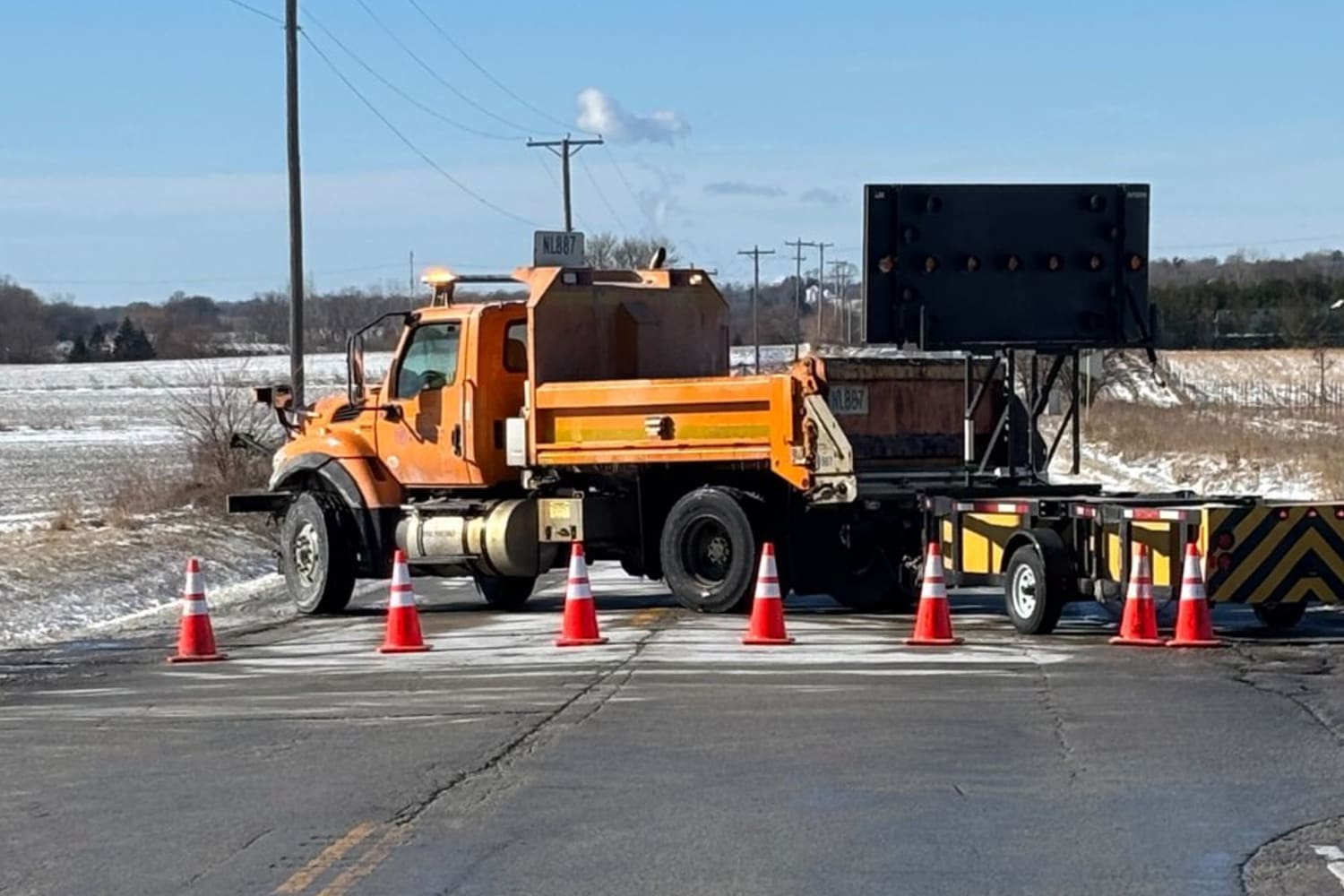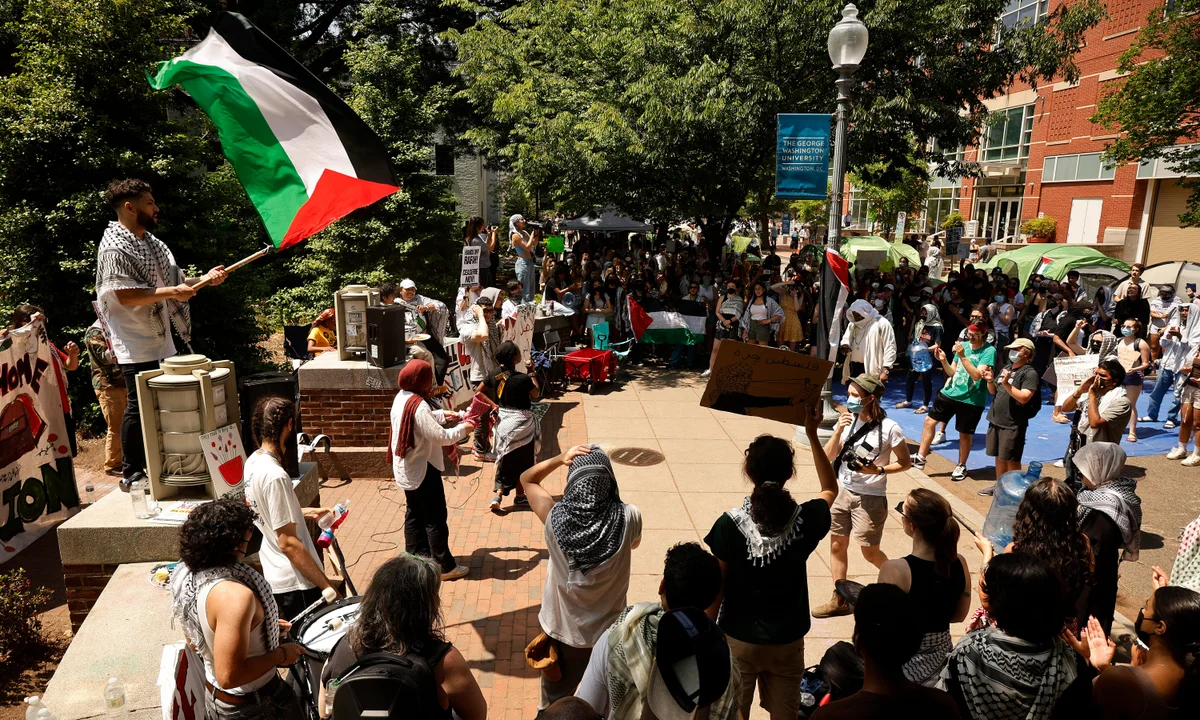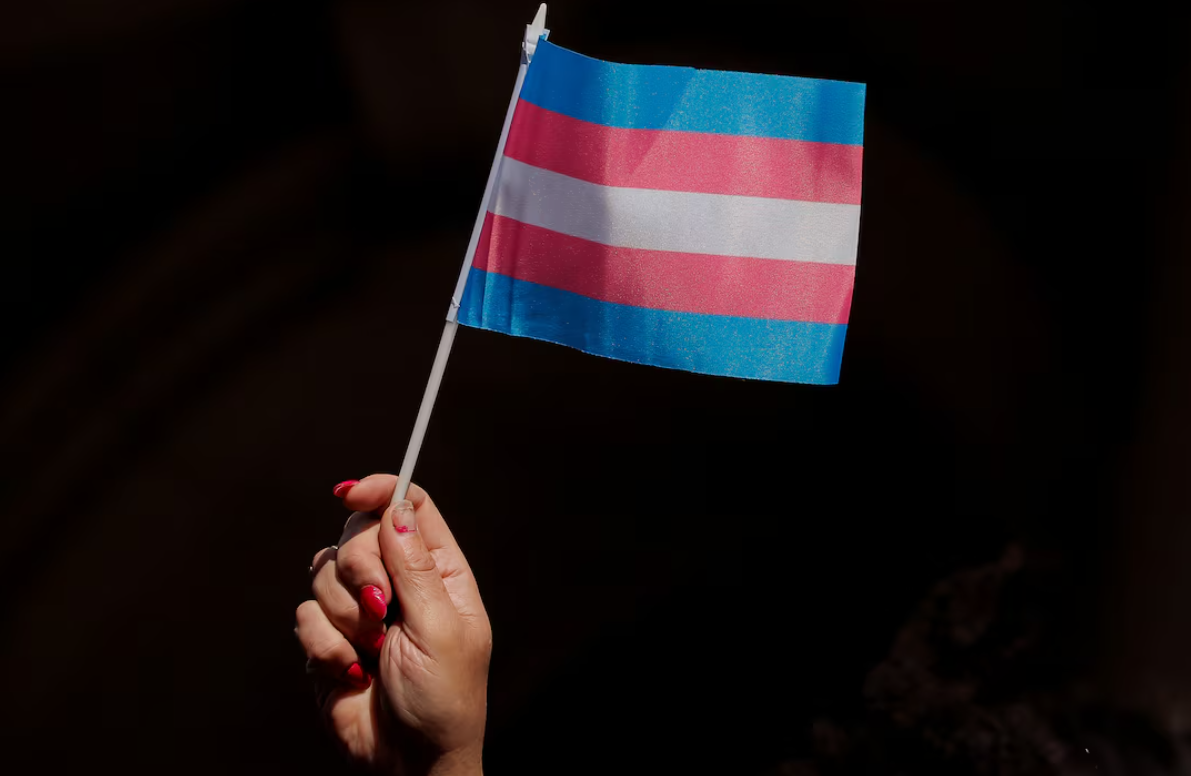The United Auto Workers filed a US labor board complaint over Harvard University’s handling of pro-Palestinian protests, claiming the university violated grad students’ rights as employees.
In a Wednesday filing with the National Labor Relations Board, the UAW’s Harvard Graduate Students Union accused the university of surveillance and retaliation against workplace-related collective action in its response to student activists. Harvard also violated federal law by denying employees union representation in disciplinary investigation meetings, and unilaterally changing policies about their access to areas of campus in order to discourage them from protesting, the labor group alleged.
The alleged retaliation targeted by the complaint includes moves such as suspending students for participating in the encampment, which can also cause them to lose their jobs, according to the union. The university denied wrongdoing.
The UAW international union has been calling for a Gaza ceasefire since December. It has denounced arrests of people protesting the war in Gaza, which began after the Oct. 7 attack by Hamas that killed 1,200 people and kidnapped hundreds more. Israel’s counterattack has killed tens of thousands of Palestinians, including civilians.
“If you can’t take the outcry, stop supporting this war,” the union’s president Shawn Fain said earlier this month.
Read more: How Israel-Hamas Protests Engulfed Elite US Colleges: QuickTake
The UAW represents around 100,000 US academic employees, including around 5,000 Harvard PhD candidates and undergrads doing teaching and research. For weeks, students including UAW members maintained an encampment near the university president’s office, demanding the school disclose and discontinue investments in Israel.
“It’s something that’s important to the members and something that’s clearly linked to our workplace,” Harvard history of science teaching fellow Sal Suri, vice president of HGSU, said in an interview. UAW members don’t want their work or their paychecks entangled with Israel’s conduct in Gaza, Suri said.
In an emailed statement, Harvard spokesperson Jason Newton said the school has informed the union that it doesn’t see the encampment in Harvard Yard as related to student worker working conditions. As a result, the administration doesn’t see it as a protected activity under federal law or the HGSU contract. The university said last week that the encampment violated school policies and created “significant disruption to the educational environment” as students were taking final exams and getting ready for graduation.
Protest leaders and university administrators announced Tuesday that they reached an agreement to take down the tents, with Harvard agreeing to answer questions about its endowment and to consider requests to reinstate suspended protesters, but not to divest. A spokesperson said the university will continue disciplinary proceedings that could result in official admonishments or expulsions. The school began suspending some protesters on Friday.
Activists have mounted similar protests at other colleges and universities across the US, including Columbia University, the University of Pennsylvania and the Massachusetts Institute of Technology. In many cases, administrators have called in police to shut the protests down as well as suspended some students.
UAW members employed by the University of California are voting this week on whether to authorize a strike over administrators’ response to Gaza protests. Undergraduate student workers at the New School who’ve been organizing with the UAW have been on strike since Monday protesting arrests of union members who were demonstrating in support of divestment, according to the union.
The Harvard case is the latest of several at schools including Brown University and the University of Southern California, in which campus unions allege that management is violating workers’ rights by cracking down on pro-Palestinian protests. Alphabet Inc. is also facing allegations it illegally fired dozens of employees for their participation in a sit-in opposing the company’s contract with the Israeli government.
The cases could test the boundaries of federal labor law, which prohibits retaliation against employees for taking collective action related to their working conditions, with or without a union.
Both Brown and USC have denied wrongdoing. Union members had no right to violate university rules as part of a “protest unrelated to their employment,” a Brown spokesperson told Bloomberg Law last week. Alphabet has also denied wrongdoing.
The NLRB’s general counsel, Jennifer Abruzzo, has taken an expansive view of what counts as “protected concerted activity” under federal labor law. “If it’s got a nexus to your working conditions, it’s PCA,” she said in response to a question last month about Gaza-related employee protests. “We need to be protecting as many workers as possible,” said Abruzzo, who was appointed by President Joe Biden in 2021. “The statute’s very broad.”




